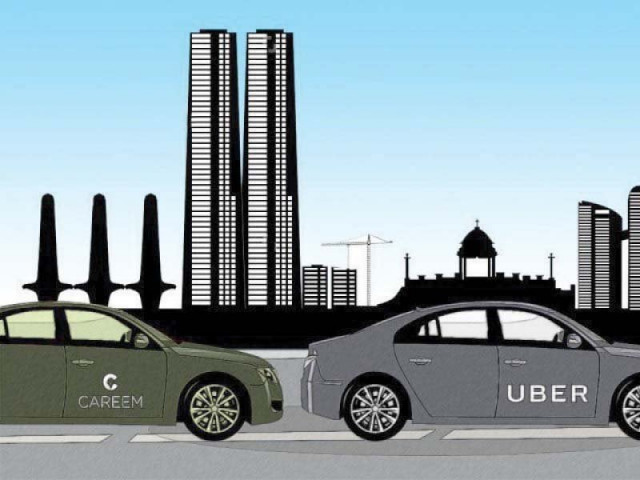Punjab ups the ante on regulating ride-hailing apps
Provincial IT board takes charge of policy formulation which has been pending for long

CREATIVE COMMONS
These include registering cars operating under Uber and Careem as commercial vehicles for the time period during which car owners are on the app.
The task, which has been long delayed, has now been taken up by Punjab Information Technology Board Chairman Dr Umar Saif due to the companies’ unique business model, and resulting difficulties, which makes the task of forming regulations problematic.
“The biggest concern of these companies is declaration of their fleet of vehicles as commercial vehicles since they do not own any of them,” Saif told The Express tribune.
Uber and Careem operate on an innovative, information technology-based model which connects people in need of a ride with private car owners willing to provide the service. Resultantly, they do not own any of the cars that form their fleet and private car owners are reluctant to register their vehicles as commercial for a variety of reasons other than higher taxes.
“Declaring private vehicles as commercial is the major irritant for the companies since resale value of commercial vehicles drops considerably,” Saif said, adding that a clause to re-register such cars as private vehicles before selling has been proposed.
“An entire clause in provincial motor vehicle ordinance has to be added for such cases and transport authorities are working on this idea,” he said.
Saif also proposed a unique tax collection model where commercial taxes would be applied on the vehicles as long as the app is switched on (drivers are on call). Revenue collection will also be automated with sales tax sent to the Punjab Revenue Authority and income tax forwarded to the Federal Board of Revenue (FBR).
The Punjab Transport Authority issued a notice at the end of January this year, declaring such online transport apps illegal due to their offering transport services without commercial licensing. Furthermore, the cars were operating without receiving fitness certificates and routine permits which was in violation of local laws and safety regulations.
The ban was lifted immediately but at the condition that company executives, in conjunction with provincial governments, will devise a legal framework under which they were to operate, within 15 days.
The companies are willing to adopt the current proposals, Saif said, adding that a legal framework was yet to be created.
Published in The Express Tribune, June 18th, 2017.
Like Business on Facebook, follow @TribuneBiz on Twitter to stay informed and join in the conversation.


















COMMENTS
Comments are moderated and generally will be posted if they are on-topic and not abusive.
For more information, please see our Comments FAQ